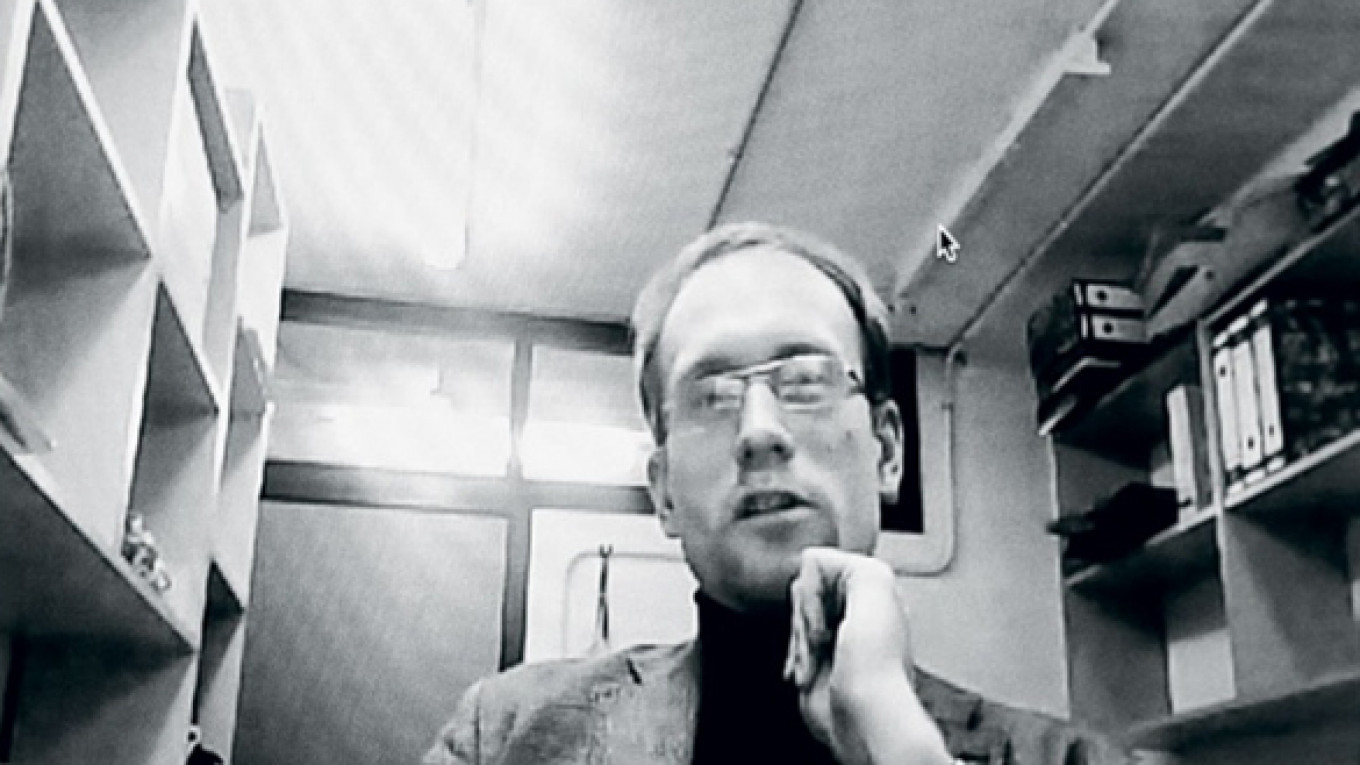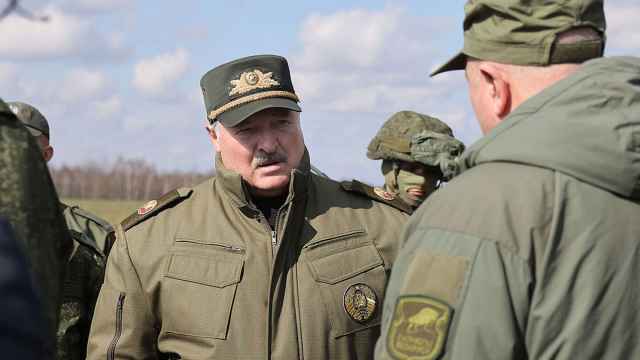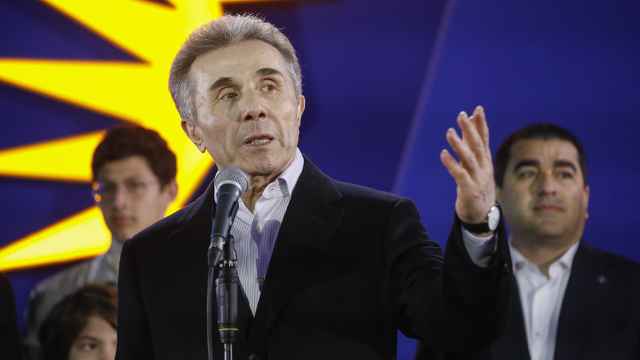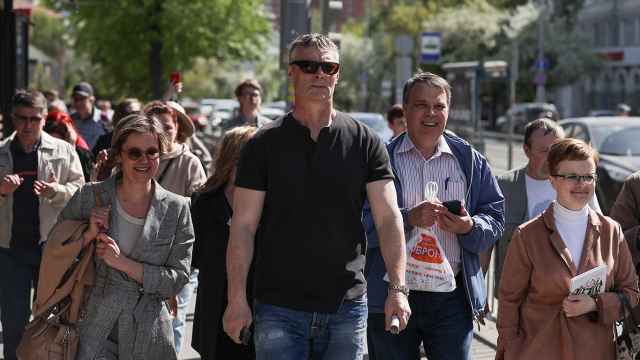During the 2011 State Duma elections, a graduate student observed the voting in the Russian Embassy in Stockholm. According to the student, voters clearly preferred the liberal Yabloko party to United Russia, the ruling party then headed by Vladimir Putin.
The vote went "strictly in accordance with the rules," but some voters objected that the observer was Russian, he said in e-mailed comments at the time. "One demanded that I should be a Swede because there are no independent Russians," he said.
Fourteen months later, that very student, Andrei Zayakin, shook the Duma by prompting the resignation of Ethics and Credentials Commission chief Vladimir Pekhtin.
It was Zayakin who, under his LiveJournal nickname, Doctor Z (doct_z), first unearthed documents proving that Pekhtin had failed to declare $2 million worth of real estate in Miami and other parts of Florida.
Zayakin's Feb. 12 was republished by blogger-turned-opposition leader Alexei Navalny the , which prompted the United Russia lawmaker to first suspend his duties and then, on Feb. 20, relinquish his Duma seat.
Although Pekhtin is more a veteran than an influential party personality, his ouster is considered a milestone victory for opposition-minded online sleuths, so much so that activists have started to call their sleuthing "pekhting."
The week that Pekhtin resigned also saw two other United Russia deputies relinquish their seats Anatoly Lomakin and Vasily Tolstopyatov. Although Lomakin officially cited health reasons and Tolstopyatov offered no explanation at all, observers say the officials feared that strict rules on business activities would have been applied to them if they had remained in the legislature.
Including United Russia's Alexei Knyshov and A Just Russia's Gennady Gudkov,both of whom left in the fall after accusations that they were illegally running businesses alongside their parliamentary duties, five deputies have quit the parliament since the December 2011 elections, more than during any time of the Duma's recent history, Channel One state television noted.
Activists say that more resignations will happen in the near future because more and more bloggers will unearth more compromising material.
Zayakin has published guidelines on his blog of how to investigate and find real estate holdings online.
A physicist who is currently a researcher at the University of Santiago de Compostela in Spain, Zayakin has become a prominent blogger thanks to the Pekhtin affair.
Originally from Yakutsk, capital of the remote Siberian republic of Sakha, Zayakin has lived outside Russia since 2007, when he went to Munich to get his doctorate. He in 2011 with a dissertation on the vacuum state of quantum chromodynamics.
On Sunday, he even on Channel One, where he said in an interview via Skype that there were some 3,000 names on his list and that "something big" would be published in the first half of this week.
He has said that if only enough Internet activists join in, they would have a chance to overthrow the ruling regime.
"I believe that 100,000 activists sitting in front of their PCs will be able to replace the regime faster than 100,000 activists waving banners on the streets," he told the Moskovsky Komsomolets newspaper in a recent interview.
When contacted by The Moscow Times earlier this week, Zayakin referred all questions to Navalny, arguing that individual contributors to the collective effort should not be overrated.
Sergei Parkhomenko, a journalist and opposition activist who says he worked closely with Zayakin in recent months, agreed that the collective effort of bloggers and activists should be the main focus.
In a telephone interview, Parkhomenko pointed to ongoing joint efforts to show that Duma Deputy Igor Lebedev, head of the liberal democratic faction and son of nationalist leader Vladimir Zhirinovsky, plagiarized his dissertation.
After the first information came from a blogger called , Zayakin and Parkhomenko contributed to the investigation. "Everybody joins in, taking information from each other . That is how it should work," Parkhomenko said.
Some opposition leaders believe that the ongoing sleuthing will result in early parliamentary elections before the current legislature ends in 2016.
"We will see dozens more deputies resigning, and my prediction is this will sooner or later end in early elections," Duma Deputy Ilya Ponomaryov of A Just Russia told The Moscow Times on Wednesday.
A day earlier, Ponomaryov documents on his blog that show that Igor Anansky, a deputy for the nationalist Liberal Democratic Party, also owns undeclared real estate in Miami, while Andrei Kolesnik of United Russia was engaging in business activities.
Ponomaryov would not disclose the origin of the documents, saying merely that they were brought to his office by citizens or shareholders. "We have weak media and law enforcement agencies that are often unwilling to investigate, therefore we need this online publicity," he argued.
But analysts have warned that the exposures only play into the hands of President Putin's ongoing anti-corruption campaign.
They argue that the Kremlin wouldn't mind if many Duma deputies were exchanged because it only relies on a handful of deputies to run the lower house of parliament.
"The only people who need talk of the Duma's dissolution are journalists and pundits," said Alexei Makarkin of the Center for Political Technologies, a think tank. Makarkin argued that the assembly had proven loyal enough to continue its work, while early elections would be far too risky for the Kremlin.
Contact the author at n.twickel@imedia.ru
A Message from The Moscow Times:
Dear readers,
We are facing unprecedented challenges. Russia's Prosecutor General's Office has designated The Moscow Times as an "undesirable" organization, criminalizing our work and putting our staff at risk of prosecution. This follows our earlier unjust labeling as a "foreign agent."
These actions are direct attempts to silence independent journalism in Russia. The authorities claim our work "discredits the decisions of the Russian leadership." We see things differently: we strive to provide accurate, unbiased reporting on Russia.
We, the journalists of The Moscow Times, refuse to be silenced. But to continue our work, we need your help.
Your support, no matter how small, makes a world of difference. If you can, please support us monthly starting from just $2. It's quick to set up, and every contribution makes a significant impact.
By supporting The Moscow Times, you're defending open, independent journalism in the face of repression. Thank you for standing with us.
Remind me later.







